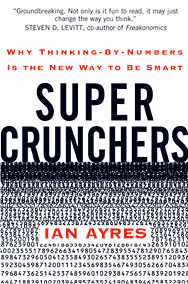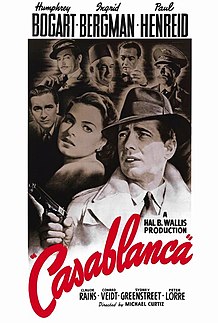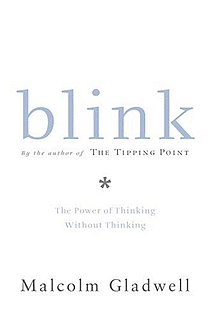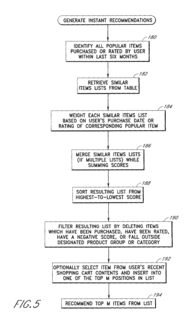Epagogix is a UK-based company founded in 2003 that uses neural networks and analytical software to predict which movies will provide a good possibility of return on investments and which movie scripts or plots will be successful. It was featured in an article by Malcolm Gladwell in The New Yorker . [1] It has also been featured in Super Crunchers , Ian Ayres' book about number analysis, in CIO magazine [2] [3] and in Kevin Slavin's TED talk. [4]

Malcolm Timothy Gladwell is a Canadian journalist, author, and public speaker. He has been a staff writer for The New Yorker since 1996. He has written five books, The Tipping Point: How Little Things Can Make a Big Difference (2000), Blink: The Power of Thinking Without Thinking (2005), Outliers: The Story of Success (2008), What the Dog Saw: And Other Adventures (2009), a collection of his journalism, and David and Goliath: Underdogs, Misfits, and the Art of Battling Giants (2013). All five books were on The New York Times Best Seller list. He is also the host of the podcast Revisionist History and co-founder of the podcast company Pushkin Industries.

The New Yorker is an American magazine featuring journalism, commentary, criticism, essays, fiction, satire, cartoons, and poetry. It is published by Condé Nast. Started as a weekly in 1925, the magazine is now published 47 times annually, with five of these issues covering two-week spans.

Super Crunchers: Why Thinking-by-Numbers Is the New Way to be Smart is a book written by Ian Ayres, a law professor at Yale Law School, about how quantitative analysis of social behaviour and natural experiment can be creatively deployed to reveal insights in all areas of life, often in unexpected ways.
The Epagogix system uses a "computer enhanced algorithm" which uses data from an archive of films which analysts have broken down into hundreds of categories [5] or plot points, such as "love scene" or "car chase". A film's script is assigned scores for these categories by an Epagogix employee, and the scores fed into a computer algorithm which estimates how much that film might take at the box office, plus or minus around ten per cent. The software may also recommend script changes. [6]
For the role-playing games concept see Plot point
A car chase is the vehicular hot pursuit of suspects by law enforcers. The rise of the automotive industry in the 20th century increased car ownership, leading to a growing number of criminals attempting to evade police in their own vehicle or a stolen car. Car chases are often captured on news broadcast due to the video footage recorded by police cars and police and media helicopters participating in the chase. Car chases are also a popular subject with media and audiences due to their intensity, drama and the innate danger of high-speed driving.

A box office or ticket office is a place where tickets are sold to the public for admission to an event. Patrons may perform the transaction at a countertop, through a hole in a wall or window, or at a wicket.
As part of a reported testing process, the Epagogix software predicted that the $50 million 2007 film Lucky You would "bomb" and take only $7 million. Upon release, the film took $6 million. [3] The company also interpreted the software's analysis of Casablanca as considering it "gloomy, downbeat and too long". [5]

Lucky You is a 2007 American drama film directed by Curtis Hanson, and starring Eric Bana, Drew Barrymore and Robert Duvall. The film was shot on location in Las Vegas. The screenplay was by Hanson and Eric Roth, but the film was partially inspired by George Stevens' 1970 film The Only Game in Town.

Casablanca is a 1942 American romantic drama film directed by Michael Curtiz based on Murray Burnett and Joan Alison's unproduced stage play Everybody Comes to Rick's. The film stars Humphrey Bogart, Ingrid Bergman, and Paul Henreid; it also features Claude Rains, Conrad Veidt, Sydney Greenstreet, Peter Lorre, and Dooley Wilson. Set during contemporary World War II, it focuses on an American expatriate who must choose between his love for a woman and helping her and her husband, a Czech Resistance leader, escape from the Vichy-controlled city of Casablanca to continue his fight against the Nazis.







